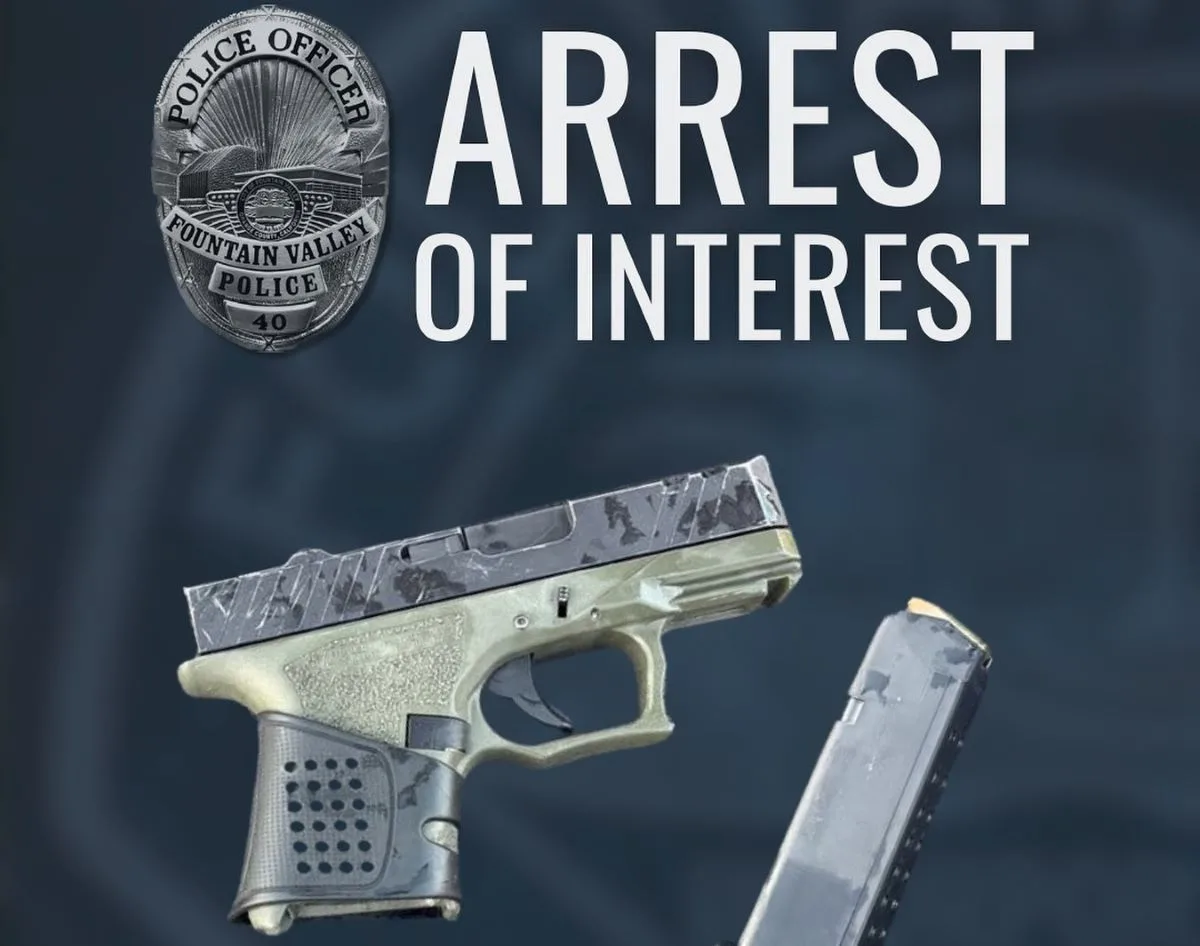A juvenile suspect was caught in the act, as he attempted to burglarize a vehicle, according to the Fountain Valley Polide Department.
The juvenile was also armed with a ghost gun.
A juvenile in California caught attempting to burglarize a vehicle while armed with a ghost gun could face serious legal consequences. Here’s a breakdown of the potential penalties:
1. Attempted Vehicle Burglary (Auto Burglary)
Under California Penal Code § 459, burglary includes entering a locked vehicle with the intent to commit theft or any felony.
- If charged as a misdemeanor: Up to 1 year in county jail.
- If charged as a felony: 16 months, 2 years, or 3 years in jail.
- For juveniles: The case is usually handled in juvenile court, where the focus is more on rehabilitation. Penalties may include:
- Probation
- Community service
- Counseling
- Restitution (paying for damages)
- Juvenile detention in more serious cases
2. Possession of a Ghost Gun
A ghost gun is a firearm without a serial number, often assembled privately and untraceable. In California, possessing such a weapon is illegal unless it has been properly serialized and registered.
- Misdemeanor: Up to 1 year in county jail and a fine up to $1,000.
- Felony: 16 months, 2 years, or 3 years in state prison.
- Additional consequences:
- Lifetime firearm ban
- Possible immigration consequences (if applicable)
- Enhanced penalties if the gun was loaded, used in a crime, or possessed by a prohibited person
3. Juvenile Court Considerations
Juvenile courts in California aim to rehabilitate rather than punish. However, if the offense is serious (like using a weapon during a felony), the juvenile may be:
- Sent to a secure juvenile facility
- Placed on house arrest or electronic monitoring
- Transferred to adult court (if over 14 and the crime is severe enough)
Summary
The juvenile could face:
- Detention or probation for the burglary
- Felony charges for the ghost gun
- Long-term consequences, including a criminal record and firearm restrictions
A juvenile criminal record—especially one involving a serious offense like attempted burglary with a ghost gun—can significantly affect a young person’s job prospects in California. Here’s how:
1. Background Checks
Most employers conduct background checks. While juvenile records are often sealed or confidential, they are not always completely hidden. If the record is accessible:
- Employers may view it negatively, especially in fields requiring trust, security clearance, or work with vulnerable populations.
- Some companies have blanket policies that disqualify applicants with any criminal history, regardless of the offense’s nature or age.
2. Career Limitations
Certain professions are especially sensitive to criminal records:
- Law enforcement, healthcare, education, and legal fields often require a clean record for licensing.
- Jobs involving firearms or security may be off-limits due to the ghost gun charge.
3. Internships and Entry-Level Jobs
Even part-time or entry-level positions can be affected:
- Employers may hesitate to hire someone with a record, fearing liability or reputational risk.
- Internships, which are often stepping stones to careers, may be harder to secure.
4. Stigma and Psychological Impact
Beyond formal barriers:
- The stigma of a criminal record can lead to fewer opportunities and lower self-confidence.
- Young people may feel discouraged or isolated, which can affect motivation and long-term career development.
5. Legal Remedies
There are ways to reduce the impact:
- Record sealing: Makes the record invisible to most employers and schools.
- Expungement: Erases the record as if the offense never occurred.
- A juvenile defense attorney can help pursue these options, improving future prospects.

